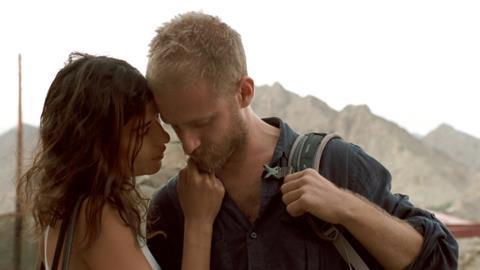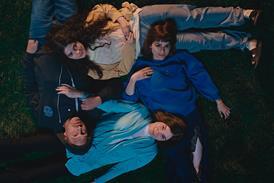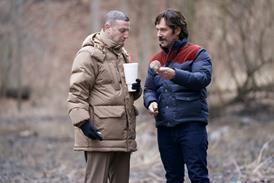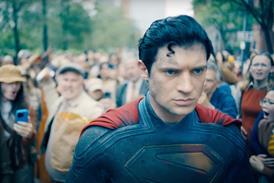Dir: Braden King. US. 2010. 120mins

The road movie genre enters new territory in HERE, heading into the cyber-space of cartography and into Armenia, a nation that’s rarely had the freedom to map out its own history.
Punctuating the film are interludes in which the musing of explorers are read, as images flash on the screen and film burns or spools out.
Like so many road movies, this one is also a love story, in this case between the cartographer and an émigré returning to her country and family.HERE is a self-consciously cerebral film about images and memory and about how the refinements of mapmaking can obscure or ignore the ground truth of a particular place.
Often the film’s characters are submerged in Braden King’s conceptual probing of these questions, but its audience beyond the obvious festival and art house circuits could be museums (HERE showed at MOMA in New York last autumn) and the multiplying outlets of new media.
The road in HERE begins in Yerevan, Armenia, where Will (Ben Foster) embarks on mapmaking research funded by the government. In a hotel restaurant where he can’t communicate, he’s helped by Gadarine (Lubna Azabal), an expatriate photographer who’s now back home. Gadarine’s portfolio looks like fragments from an archaeology-in-progress.
Their brief encounter ranges through a territory that’s a nation in flux - green hills, jagged mountains and lush gorges, and roads where new businesses seem constructed in neon.
Foster plays Will as a restless wanderer caught between the certainty of Google mapping and the places that rarely let foreigners know them. As Gadarine, Lubna is the errant daughter fleeing and drawn to her traditional family and she’s an expat reconstructing a heritage that she left. When the couple gets too close to a war area, mythology gets a reality check.
In HERE, the landscape doesn’t become a character, as the boilerplate cliché would have it, but the brief-encounter romance becomes a proto-documentary, with cinematographer Lol Cawley’s camera ranging omnivorously and Gadarine’s photographs cataloging the country. You risk becoming more interested in the fate of Armenia, which lacks a roadmap for the future, than in the outcome of the bond between Will and Gadarine, which veers toward dramatic recipes that serve up measures of family, destiny and freedom.
Punctuating the film are interludes in which the musing of explorers are read, as images flash on the screen and film burns or spools out.
In road movies, characters always share space with the surroundings. In this novel approach to the road movie, King’s interludes exit the journey and offer the viewers moments of meditation. Like a bus on its way somewhere, he’ll probably lose some of his public, and gain part of a new one.
Production companies: Truckstop Media, Parts and Labor, Reale Dingeman Productions
International Sales: K5 International, www.k5international.com
Producers: Braden King, Lars Knudsen, Jay Van Hoy
Executive Producer: Julia King
Screenplay: Braden King, Dani Valent
Cinematography: Lol Cawley
Editors: Andrew Hafitz, Paul Zucker, David Barker
Music: Michael Krassner, Boxhead Ensemble
Main Cast: Ben Foster, Lubna Azabal, Narek Nersisyan, Yuri Kostanyan, Sofik Sarkisyan




















